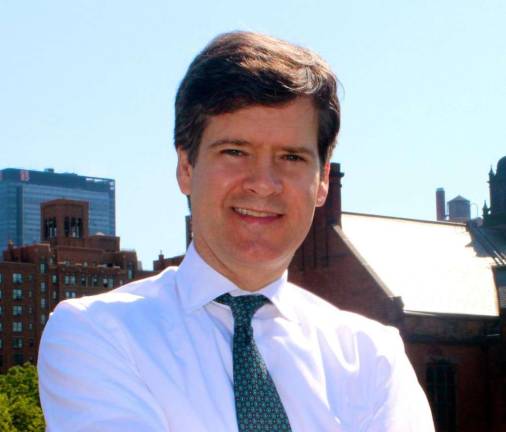Tax Policy or Political Gimmick?

Sen. Brad Hoylman questions the efficacy of a state tax rebate program in helping New Yorkers By Adam Janos If you're a New Yorker with a kid, you may have some cash that'll be waiting for you in your mailbox, come next autumn. That's because the state is issuing a $350 tax rebate check to families with at least one child (under 18) whose total household income falls between $40,000 and $300,000 per year. There'll be no forms for you to fill out; claiming the money will be as effortless as a walk to the bank. Just in time for the general election. That's the claim made by Citizen Action of New York, a grassroots organization that advocates for economic justice and an end to electoral corruption. "Mailing out checks is designed to make people appreciate the incumbent legislators at election time, because they just got a check in the mail," said Karen Scharff, executive director. "It's an election year gimmick? I think it's fine to make the tax system more progressive. A child tax credit is fine, but we need a comprehensive reform to our tax system; we shouldn't do one-time rebates that are tied to election cycles." State Senator Brad Hoylman agrees, which is why he voted against the bill when it came to the senate floor. But beyond his problems with the gimmick element, Hoylman also believes that the $375 million which will be spent over three years on this rebate is a poor use of taxpayer money, which could go to a variety of programs, including ? amongst other things ? restoring $90 million in cuts to New York State's Office for People with Developmental Disabilities (OPWDD), providing $25 million to start up the Dream Act, and increasing community college-based aid. "I'm not saying that people need to pay more taxes," explained Senator Hoylman. "But we need longer term strategies. No one has studied the impact of this rebate check. It came up at the last minute behind closed doors. No constituency was campaigning for it. On the other hand, I had troves of seniors, kids with disability issues, public school parents? all trying to preserve their programs. I mean the New York State AIDS Institute was cut by $5 million. That's what I find objectionable. The rebate discussion came within the course of a few days without any data or economic information to back it up." Hoylman, who served as Vice President at the Partnership of New York City, has some background working in the world of commerce and fiscal policies. However with this tax rebate, his thinking comes less from his experience in the financial sector and more from his philosophy regarding the relationship between the state and its citizenry. "The basic function of government is to protect the most vulnerable in our society," said Hoylman. "For families and individuals who have conditions [ranging] from cerebral palsy to autism? they're left behind in this budget [due to cuts in the OPWDD]. I've met with a lot of people who directly benefit from those services, and there's widespread concern that with this budget, some people will have to institutionalize their family members. That's a very frightening prospect." Hoylman also questioned the exclusivity of the tax rebate: immigrants, senior citizens, and the extremely poor will all be left off the payroll when the checks start getting cut. Meanwhile, at the more affluent end of the rebate bracket, households with $300,000 will be receiving money for their kids. "At the upper scale, it makes no difference," Hoylman said. Hoylman is indignant that his colleagues in the Senate and Assembly are trying to buy votes, rather than help advance the greater good; for him, programs like these rebate checks are the seeds from which cynicism with government grows. "One-time feel-good rebate checks are not the answer, particularly when they're not targeted at the poorest people. There's a growing income inequality in New York, and to me the better approach is to fix it in a systemic way."